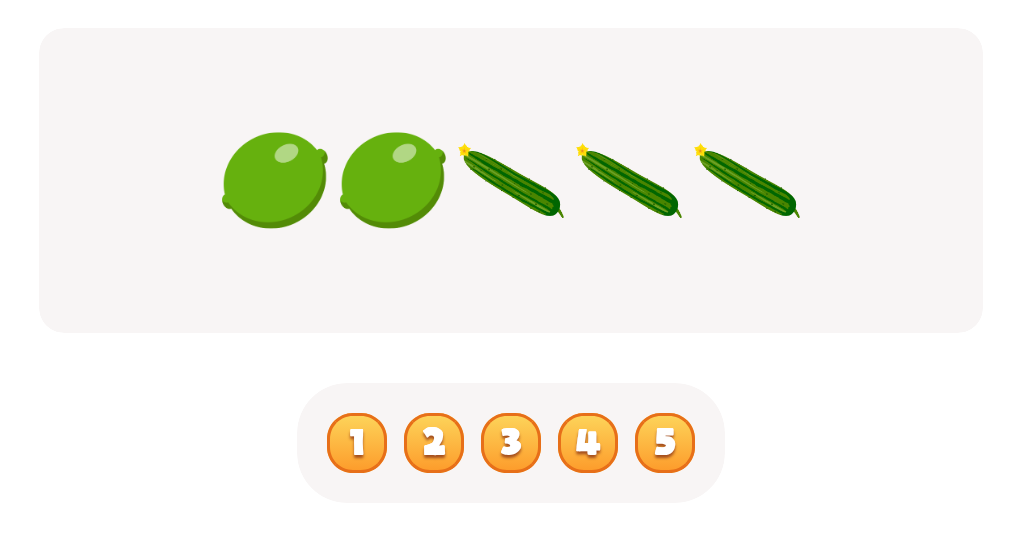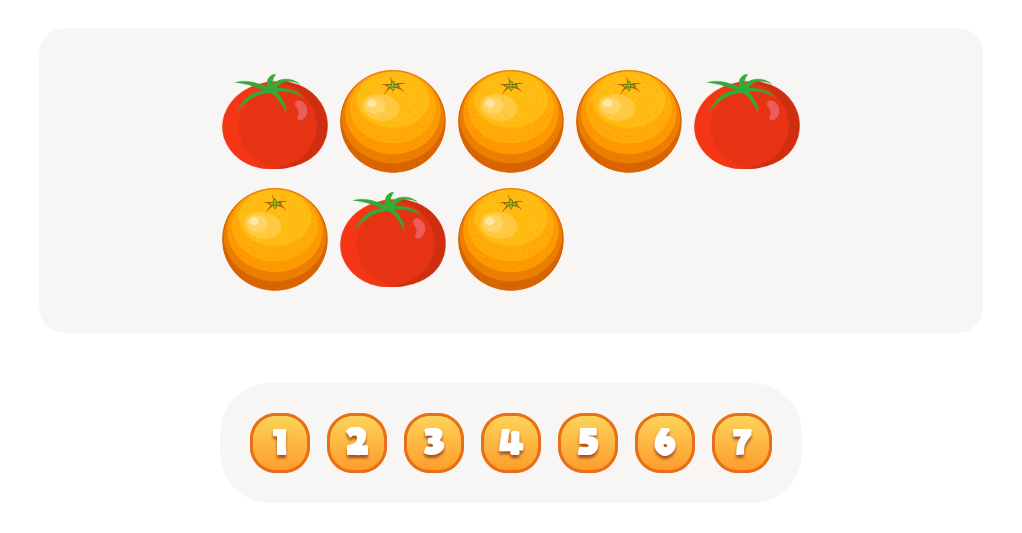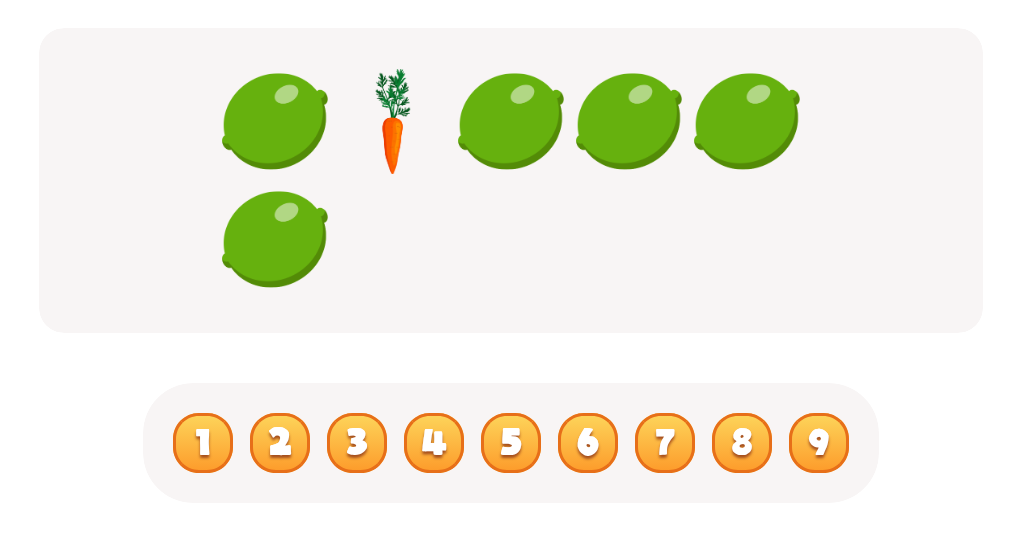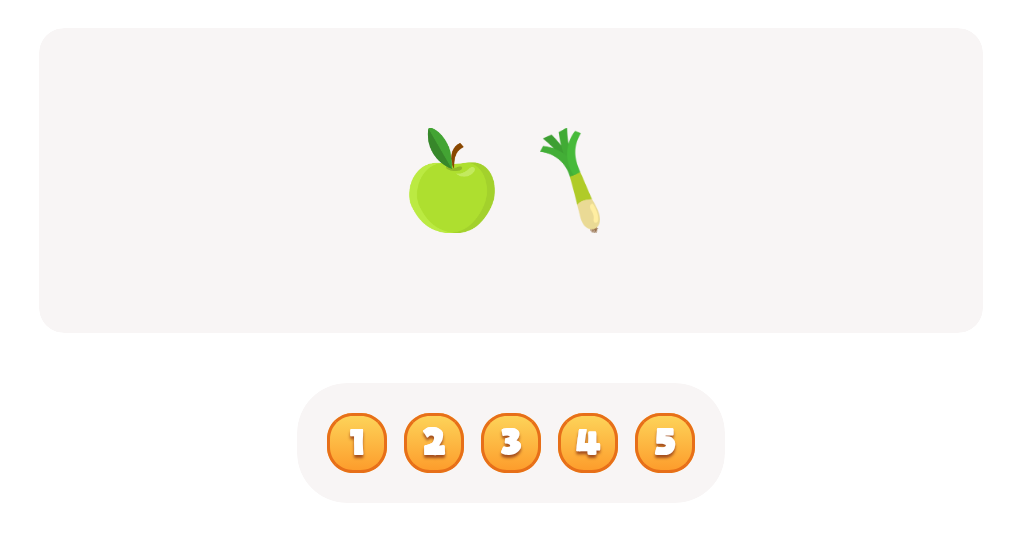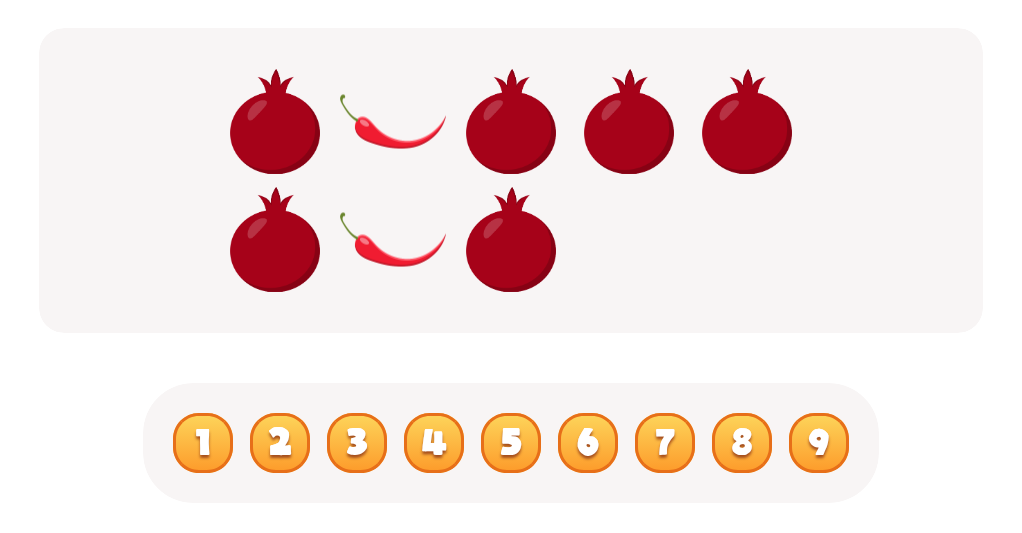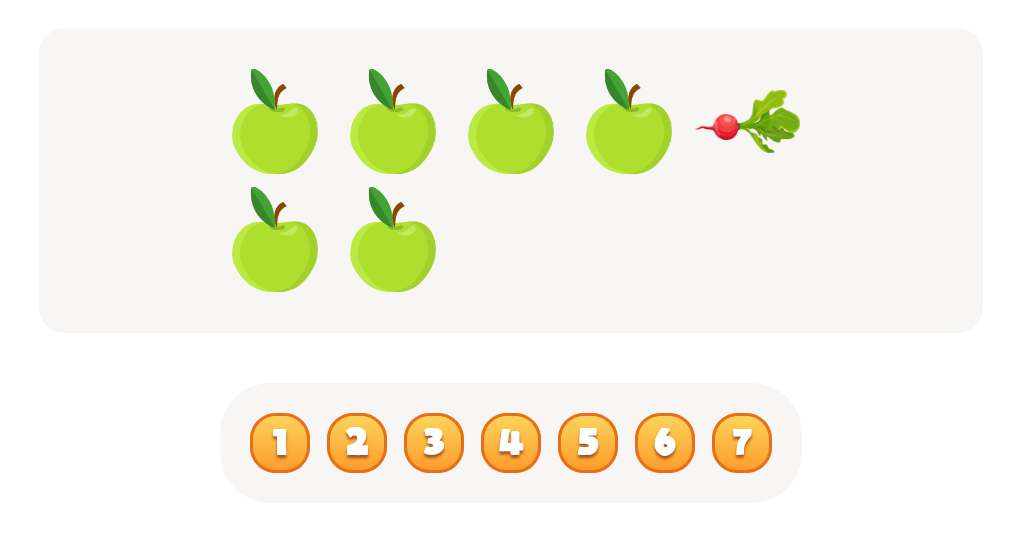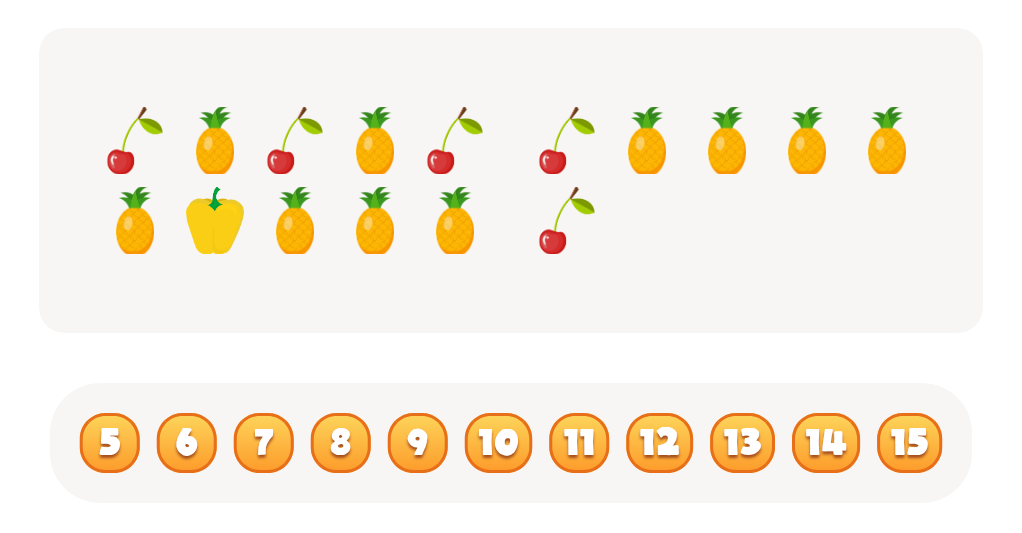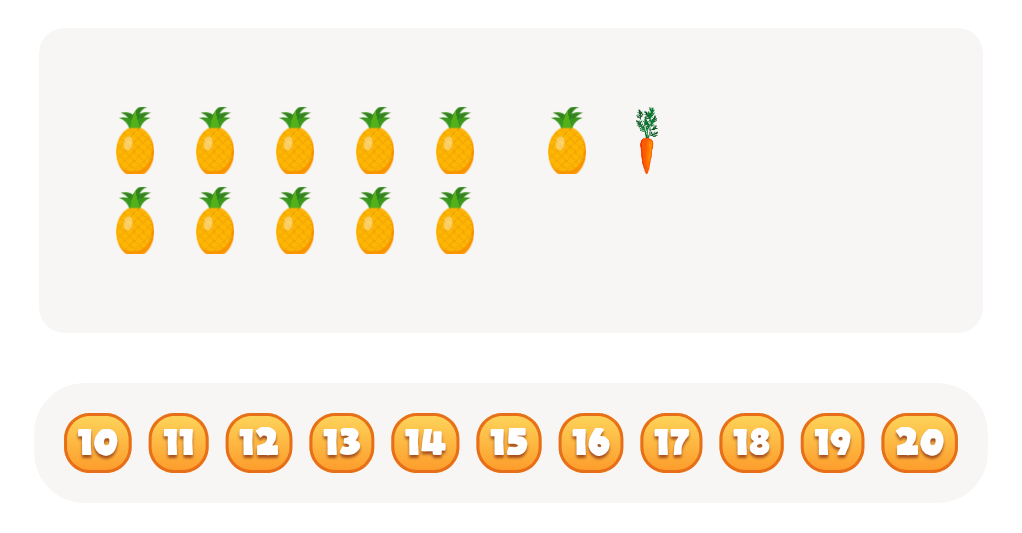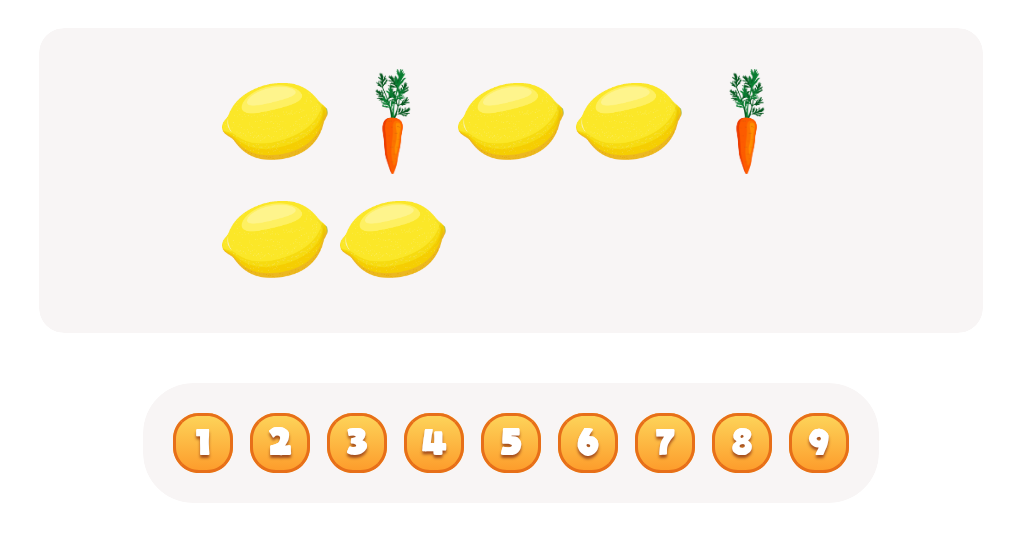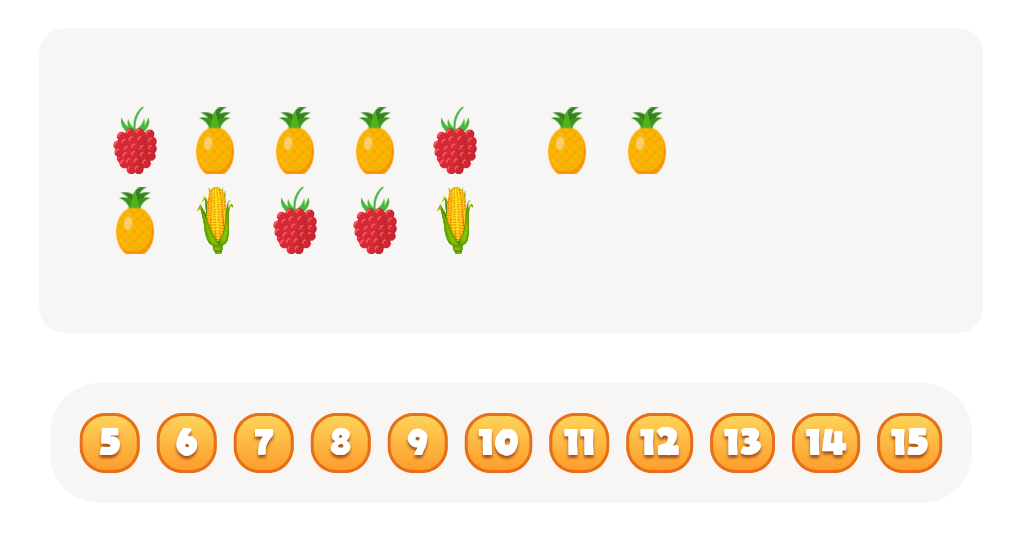Vocabulary expansion Plants and Animals Worksheets for Ages 4-8
15 filtered results
-
From - To
Enhance your child’s vocabulary with our engaging "Plants and Animals Worksheets" designed for ages 4-8! These fun, interactive worksheets introduce young learners to vital vocabulary related to the natural world, fostering a deeper understanding of plants and animals. Each worksheet is filled with colorful illustrations and engaging activities that encourage exploration and enhance language skills. Perfect for both classroom and home learning, our resources help children articulate their observations and curiosity about nature. Watch as your child develops essential vocabulary while discovering the fascinating aspects of plant and animal life. Start their adventure in vocabulary expansion today!
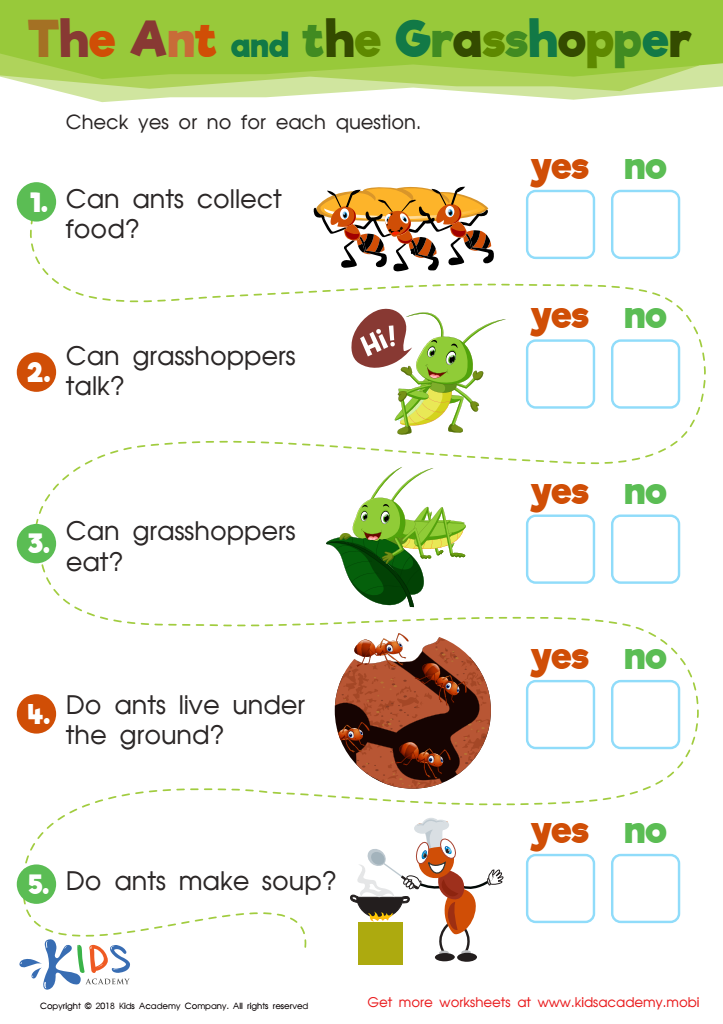

The Ant and The Grasshopper Worksheet
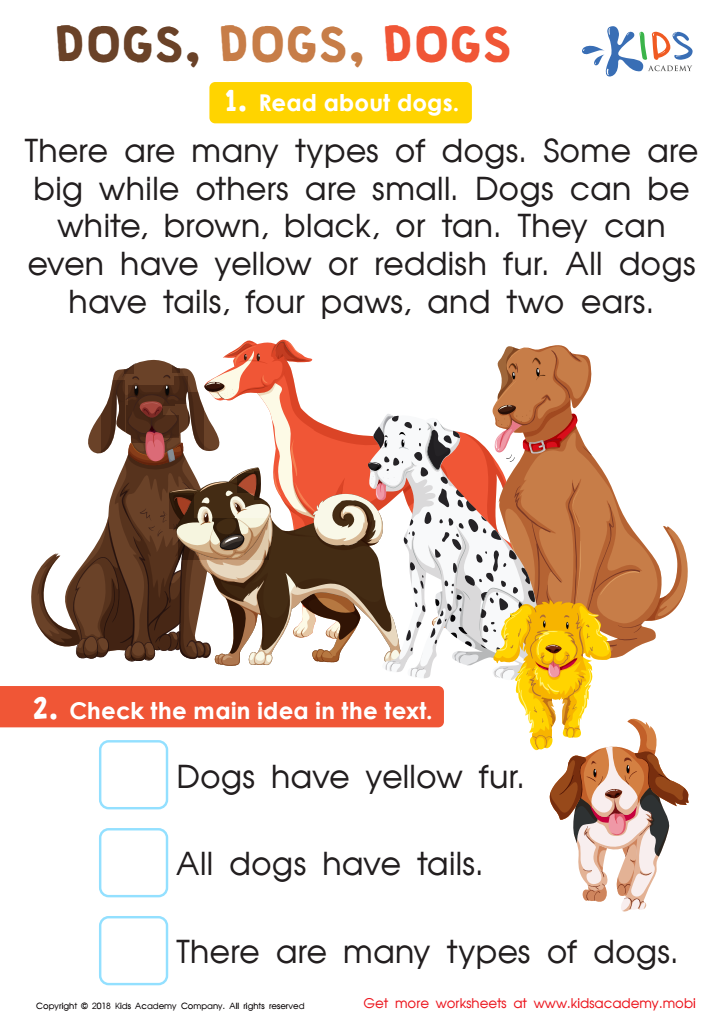

Dogs, Dogs Worksheet
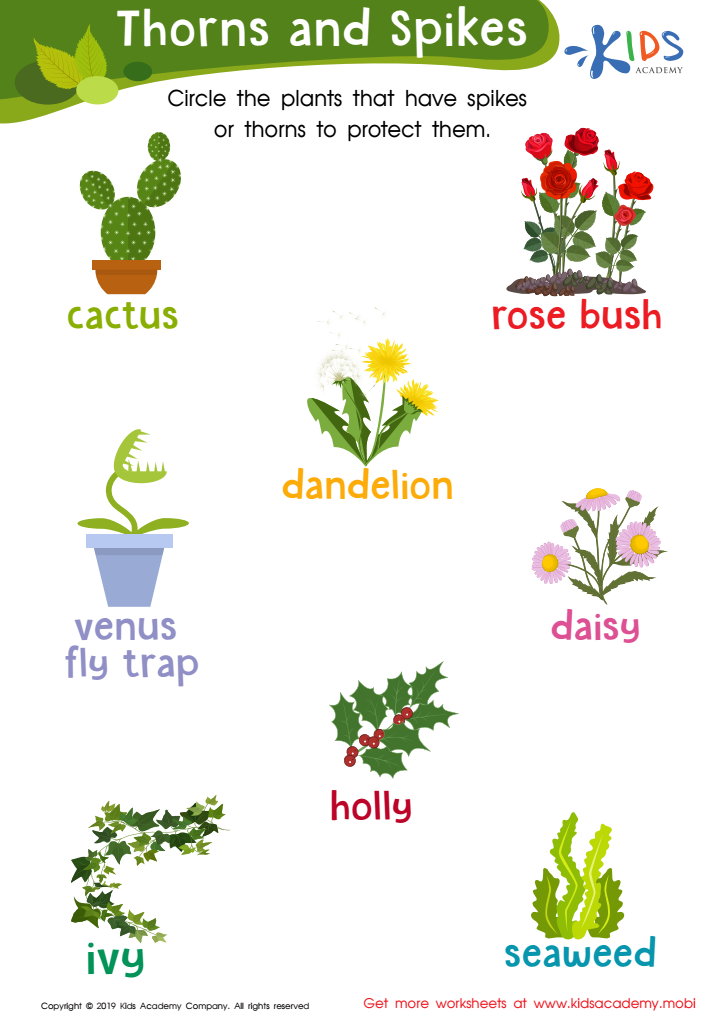

Thorns and Spikes Worksheet
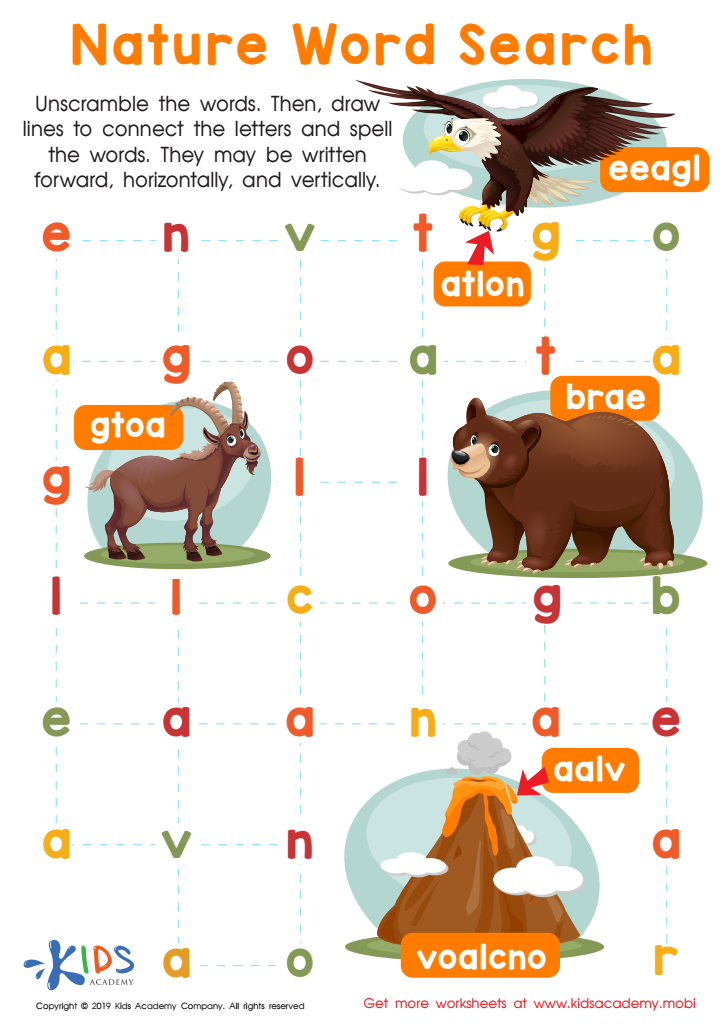

Nature Word Search Worksheet
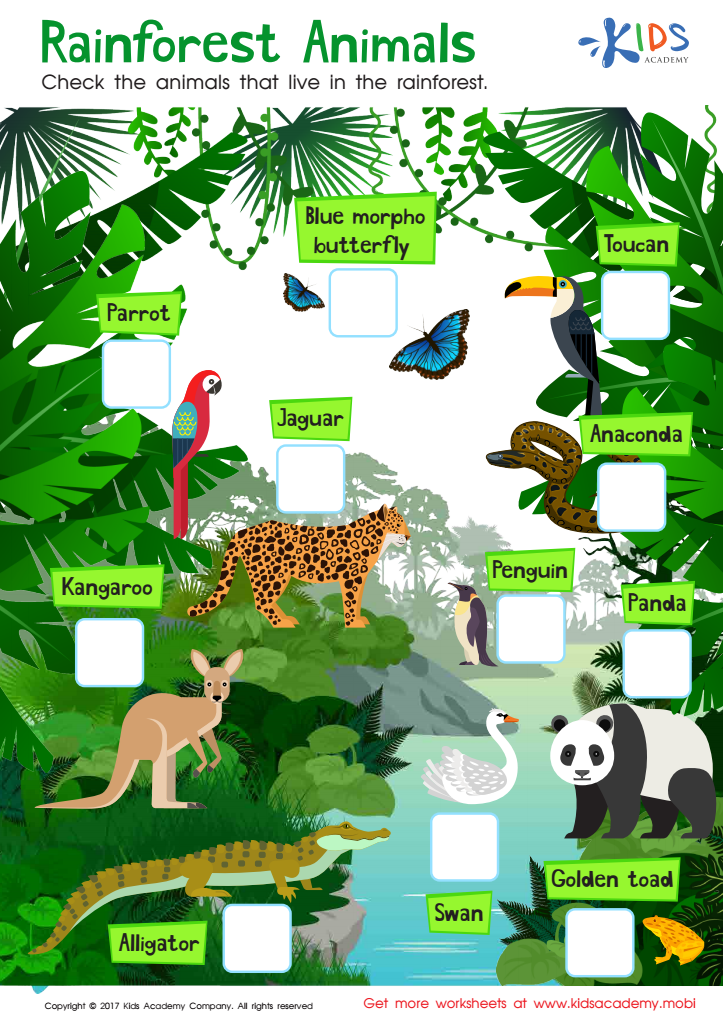

Rainforest Animals Worksheet
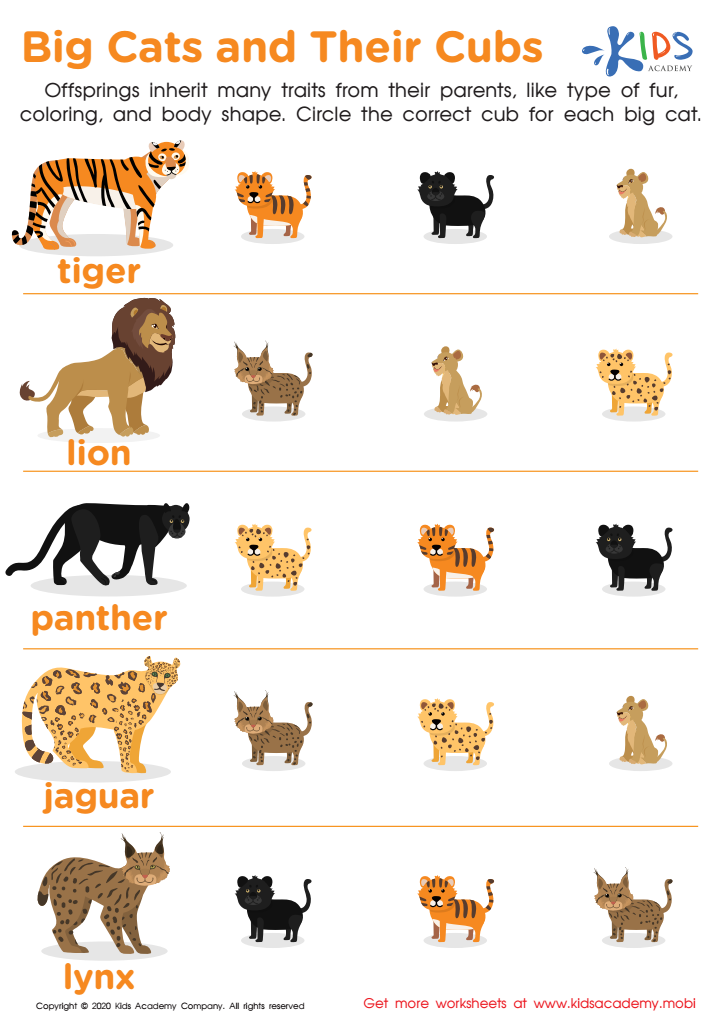

Big Cats and Their Cubs Worksheet
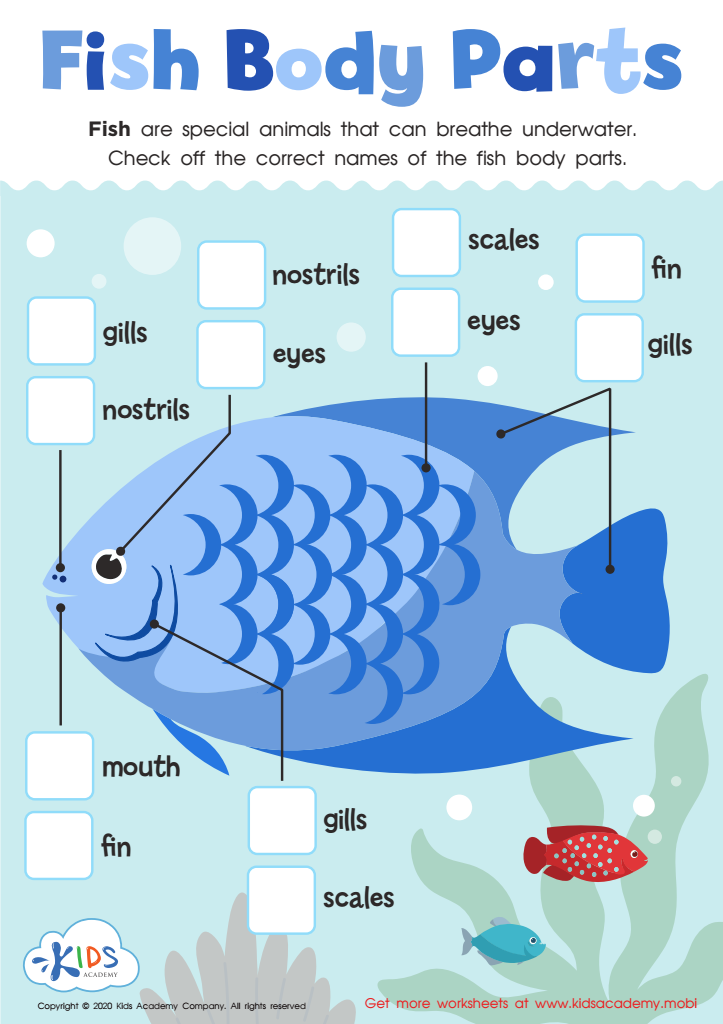

Fish Body Parts Worksheet
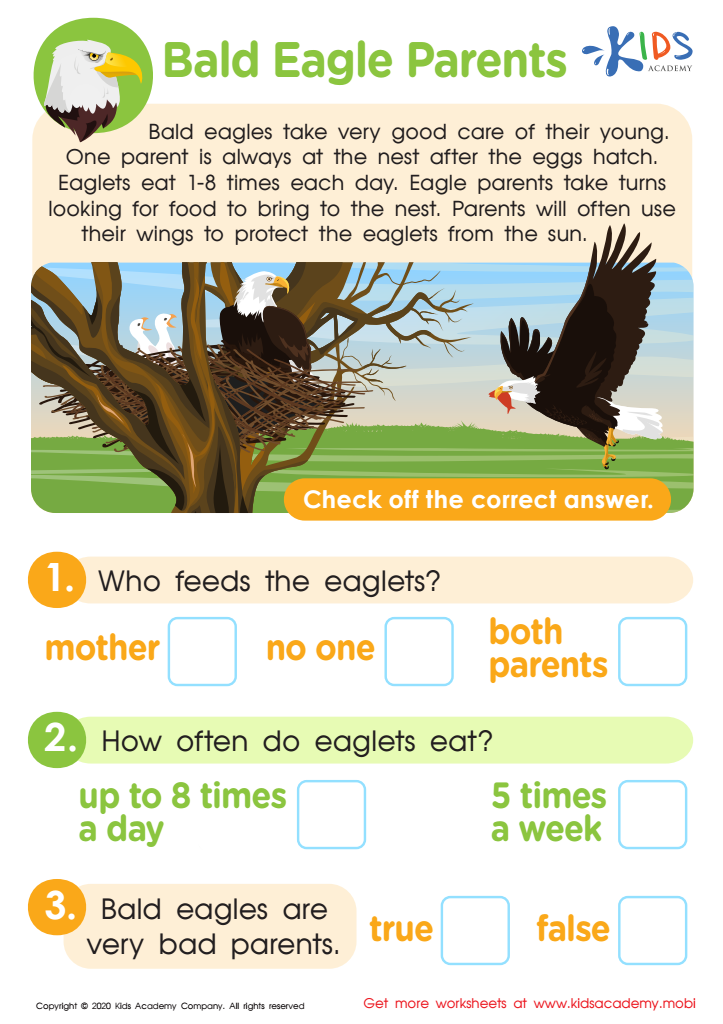

Bald Eagle Parents Worksheet
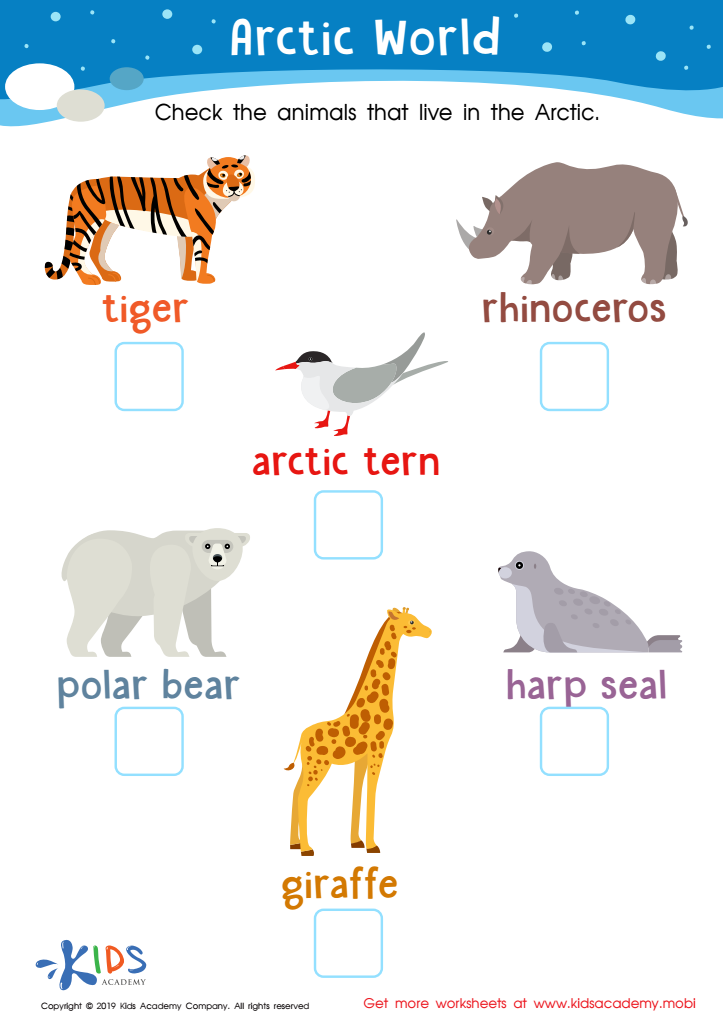

Arctic World Worksheet
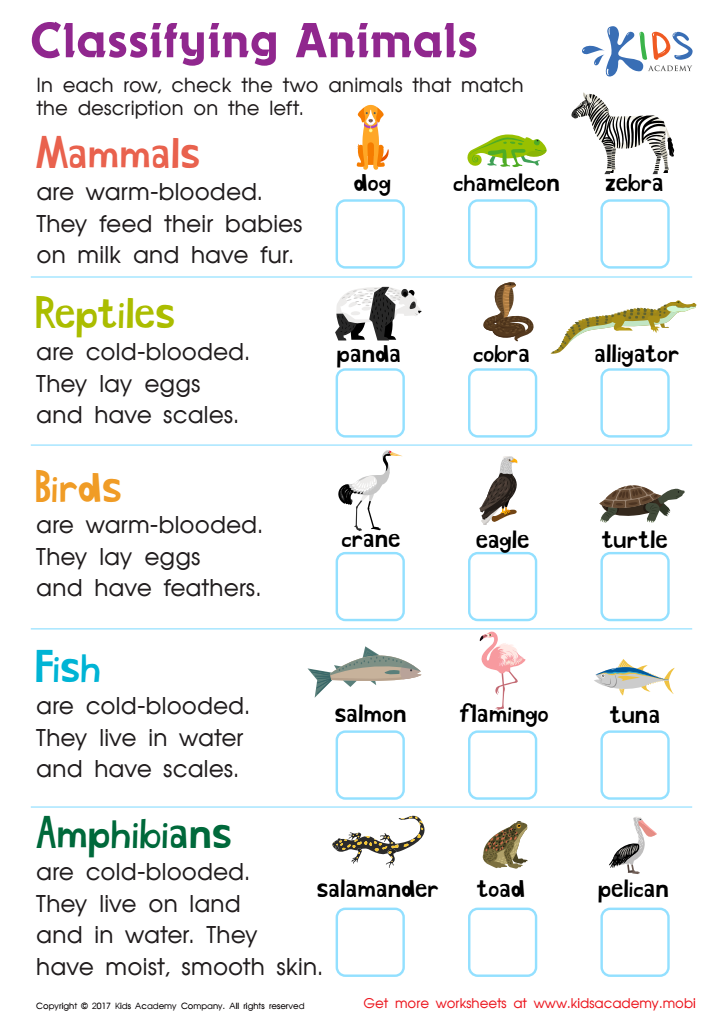

Classifying Animals Worksheet
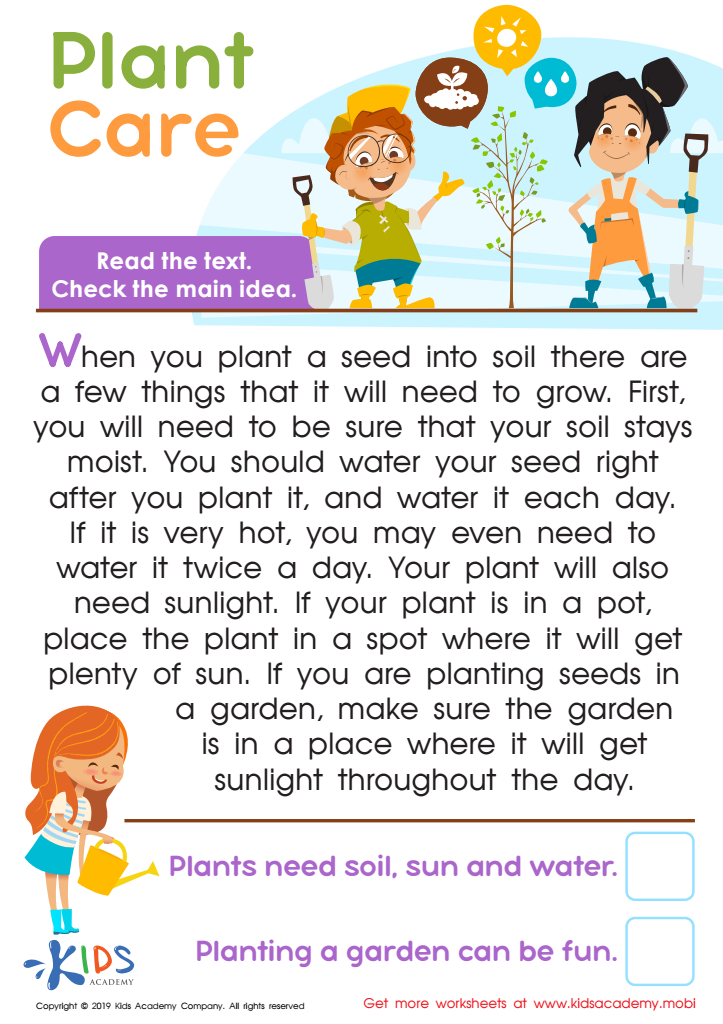

Plant Care Worksheet
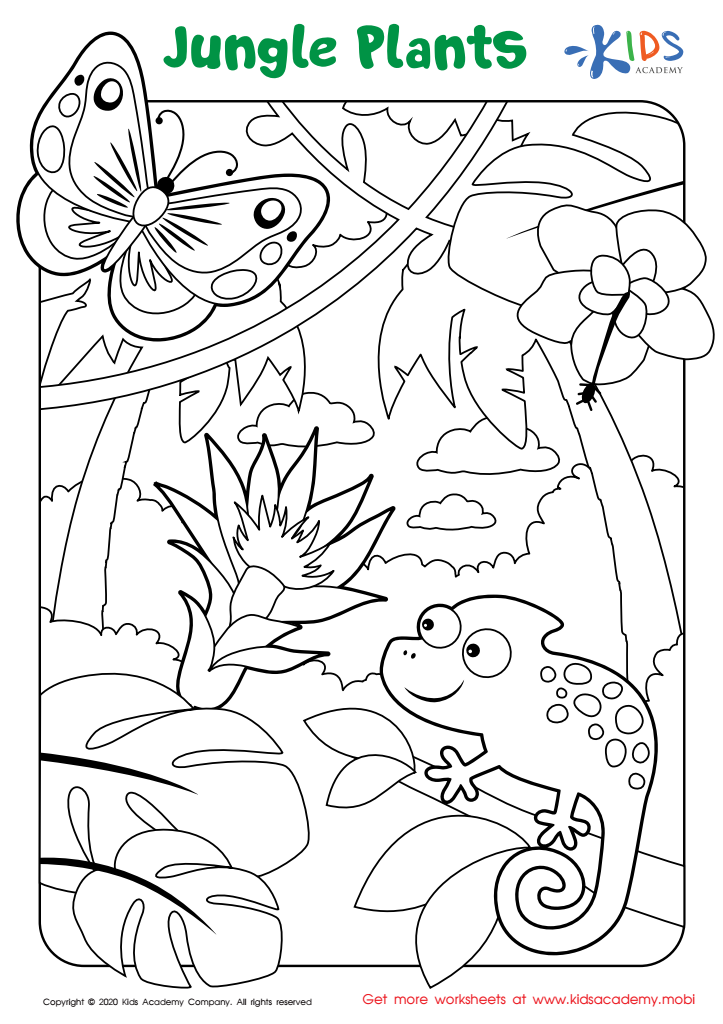

Jungle Plants Worksheet
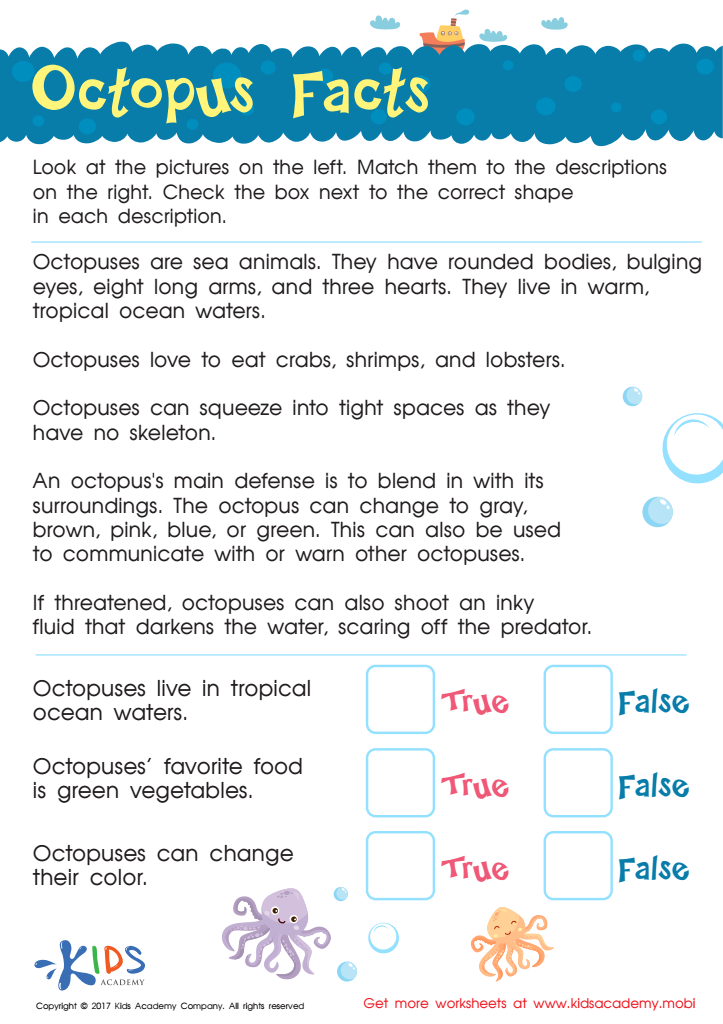

Octopus Facts Worksheet For Kids
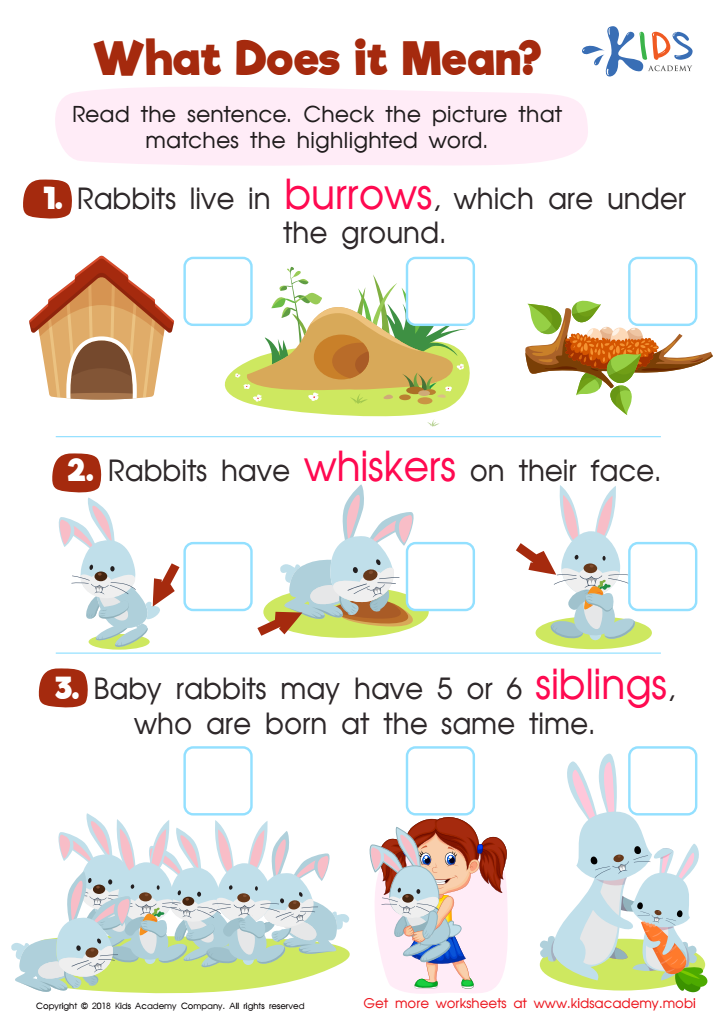

What Does It Mean? Worksheet
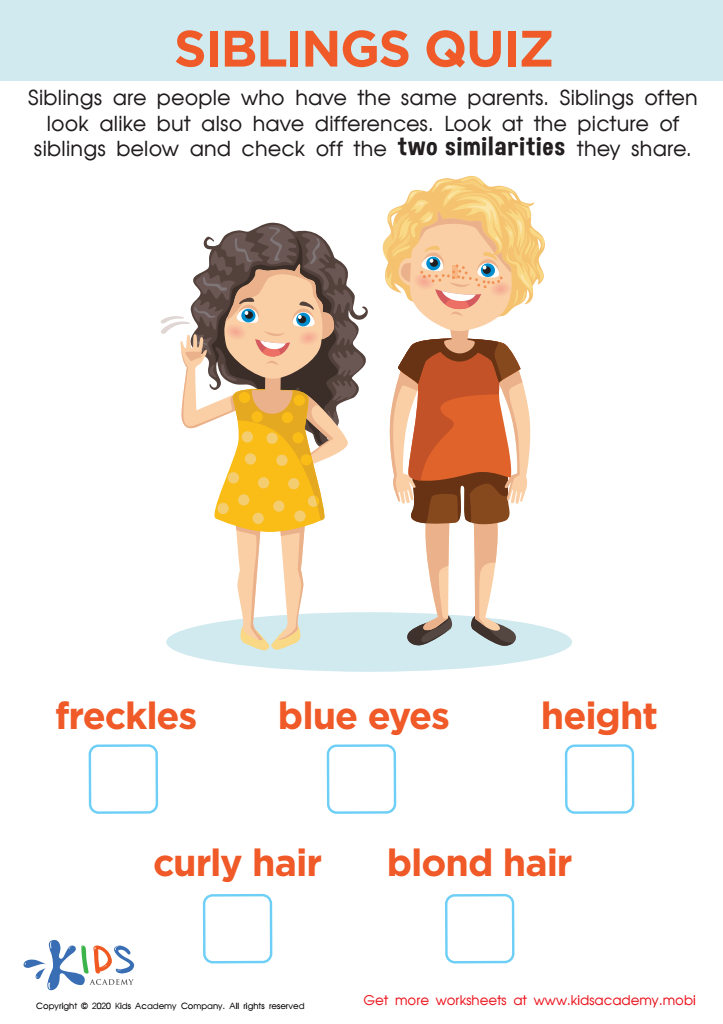

Siblings Quiz Worksheet
Vocabulary expansion related to plants and animals is crucial for children aged 4-8 for several reasons. At this developmental stage, children are naturally curious and engage eagerly with the world around them. Exposure to a rich vocabulary involving plants and animals can enhance their descriptive abilities, allowing them to express their thoughts and observations more clearly.
Understanding terms related to plants and animals not only fosters language skills but also opens doors for learning in science and environmental awareness. It equips young learners with the words to discuss their experiences in nature, developing observational skills and critical thinking. This vocabulary expansion is a lifetime gift, igniting a passion for the environment and encouraging future exploration and stewardship.
Additionally, integrating vocabulary lessons into daily activities—like gardening or visiting a zoo—makes learning more engaging and meaningful. As parents and teachers highlight this vocabulary, they promote literacy development, comprehension skills, and cultural and scientific appreciation. Furthermore, a well-rounded vocabulary enhances communication abilities, boosting self-confidence and social interactions among peers.
By prioritizing vocabulary related to plants and animals, adults can lay the foundation for a child's academic success and their understanding of the natural world, which is essential for promoting passionate, informed citizens.

 Assign to My Students
Assign to My Students
